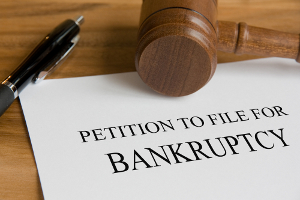 Bankruptcy is an all or nothing proposition. What I mean is that a debtor cannot file bankruptcy to discharge a single debt. Bankruptcy is designed to address all of a filer’s creditors. However, these creditors are not all treated equally. Treatment of creditors is largely based upon the type of bankruptcy case filed and the type of claim held by a creditor.
Bankruptcy is an all or nothing proposition. What I mean is that a debtor cannot file bankruptcy to discharge a single debt. Bankruptcy is designed to address all of a filer’s creditors. However, these creditors are not all treated equally. Treatment of creditors is largely based upon the type of bankruptcy case filed and the type of claim held by a creditor.
In Chapter 7 cases, secured claims can be reaffirmed or surrendered. Reaffirming a debt means that the debt survives the bankruptcy. Mortgages are a common type of reaffirmed debt. When a filer wishes to keep a home after bankruptcy and continue making payments to the mortgage lender then they may choose to reaffirm the debt. In Chapter 13 cases, secured claims can be paid directly to the creditor by the debtor, paid through a trustee, or not paid at all. Once again, it depends on the debtor’s intentions as to the collateral securing the loan.
Priority claims are not discharged in Chapter 7 or Chapter 13 cases. This means that the debtor continues to be liable for any unpaid portion left after the case is concluded. These claims must be paid in full in Chapter 13 plans. Priority claims may include recent income tax liability and child support arrears.
Unsecured creditors may be paid in full, in part, or not at all in bankruptcy cases. In Chapter 13 bankruptcy, unsecured creditors receive payments from the trustee if the debtor has any disposable income that can be paid to this category of creditor. In Chapter 7 cases these creditors only receive payment if the debtor has nonexempt property that can be liquidated and the proceeds paid to the creditors. Unsecured creditors are paid equally as a class. Debtors cannot pick and choose who gets paid. To do so is to show preferential treatment to one creditor over another. This isn’t allowed in bankruptcy cases.